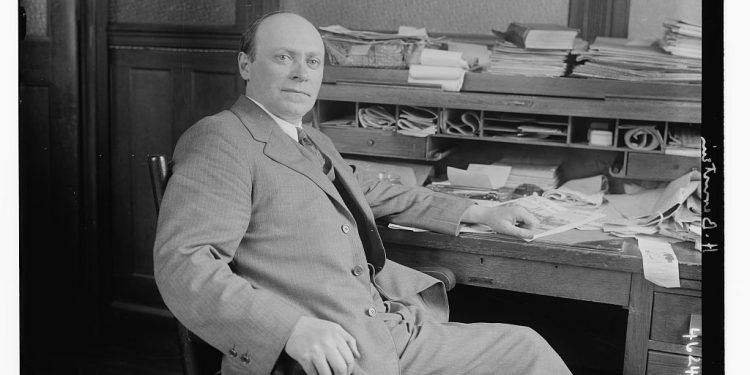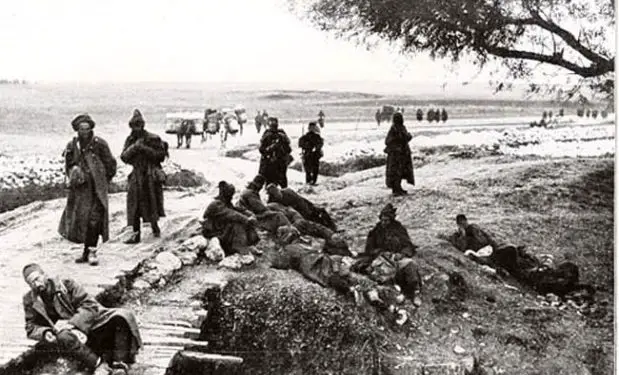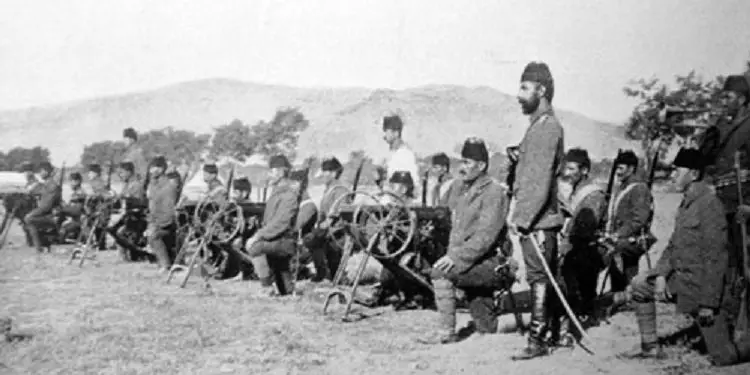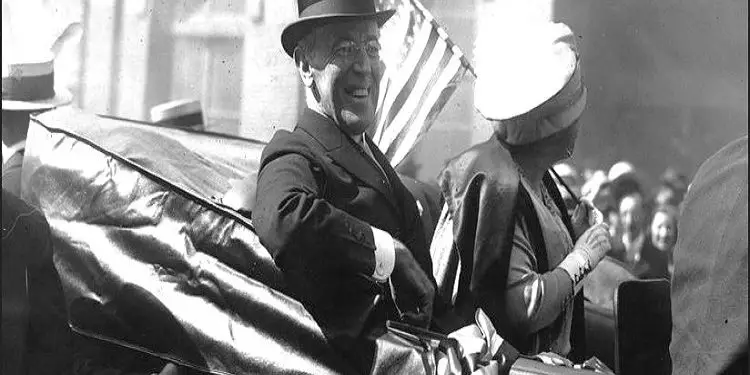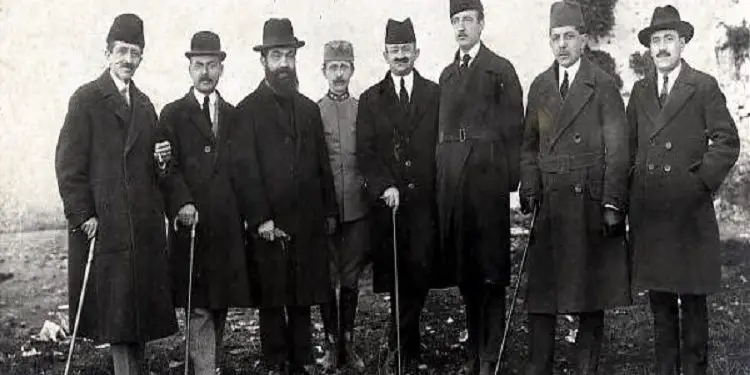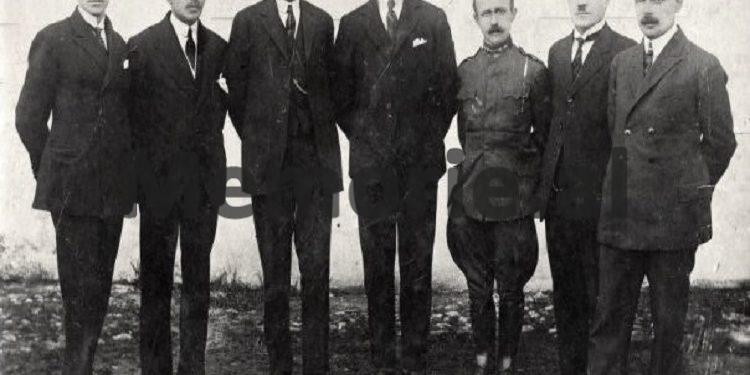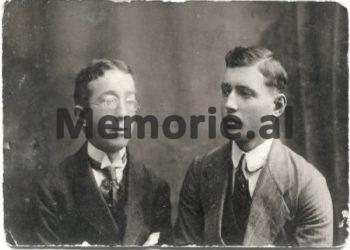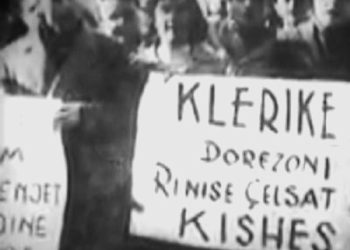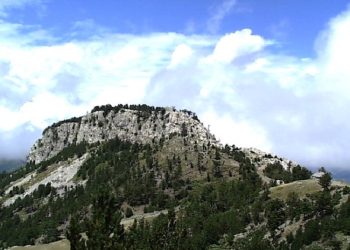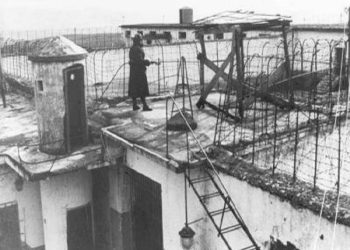By Herman Bernstein
– Forecasts for a new war in Albania, on the eve of the beginning of the Second World War. The geostrategic interests of the Balkan country and the tense relations between Albania and Italy. The circumstances of their neighbors and allies –
Memorie.al / Albania is considered one of the most dangerous areas in Europe. A new war can start in this country, if the political and military interests of other countries in Albania continue to conflict with each other. Due to its geographical position, this small country has a main role in the Adriatic and has been considered as the object of fights of different nations throughout the centuries. From a strategic point of view, its coastline would be of incalculable value to Italy in time of war.
For years, Italy has poured large sums of money into Albania, to organize the army, to build roads, bridges and fortifications. It is even believed in the Balkans that Italy’s efforts to militarize Albania are part of the program of imperialist ambitions, accredited by Mussolini, to deport to the Balkans in order to recapture Rome’s famous road, Egnatia, which leads through Albania and Yugoslavia, in Thessaloniki and Istanbul.
Every movement of Italy in Albania is observed with suspicion and fear by France, by the Little Ententes and especially by Yugoslavia. Over the last few years, financial aid and military instructions to Albania from Italy have served to increase the sense of nervousness in the Balkans and have forced Yugoslavia to undertake feverish military preparations to combat the formidable Italian penetration in the Balkans.
A “chess piece” in the hands of the powers that be!
In this way, small Albania has turned into a “chess piece” (guarantee) in the game of two conflicting blocks of European diplomacy, one led by Italy and the other by France. It has benefited to some extent from this conflict of interests and succeeded in strengthening its national unity, first with the help of Yugoslavia and then with the help of Italy.
Whatever may have been the hidden reasons of these countries, Albania has cleverly and courageously defended its independence, even though it was often forced to make innumerable sacrifices, concessions and compromises in exchange for the material aid that it provided since the end of the war.
Whether or not the roads and bridges built with the help of Italian funding were part of Italy’s military schemes is not known, they already play an important economic role for Albania, given that normal communication has been achieved between the different parts of this small country. mountainous.
A story full of challenges
During the war, Albania was the scene of many invasions. Greek, Serbian, French, Austrian and Italian armies fought each other in Albania, dividing this small country into different zones under foreign influence, while the people were subjected to untold deprivation and misery. Ahmet Zogu, the current King, was exiled to Vienna during the war. Albania’s independence, proclaimed in 1912, was terminated.
At the Paris Peace Conference, all her demands were completely ignored. The peace delegates of Albania, headed by Mehmet Bej Konica, brother of the present Albanian minister to the United States, placed their hopes in the hands of President Wilson and called on the American peace delegation, as an honest power, to take in hand the mandate for Albania.
Yugoslavia, Greece and Italy were eager to secure their “spheres of influence”. In 1919, an agreement was reached by Klemeko, Lloyd George and Niti, in the absence of American representatives, and the mandate of Albania passed into the hands of Italy, under the League of Nations, and leaving Yugoslavia some provinces of Northern Albania. Albanians protested against this imposed solution, which deprived them of their independence and divided their country.
Wilson’s protest
President Wilson strongly opposed the agreement reached, since it was carried out in the absence of American representatives and aimed at “the fragmentation of Albania, against their vehement protests, between three different powers”.
Albania’s independence was protected at the moment when the American government declared that; “the issue of Albania was not to be included in the joint discussions proposed by Italy and Yugoslavia, and the President must reaffirm that he cannot approve any plan which assigns to Yugoslavia in the northern regions of Albania the territorial compensation that she can was taken by force in another country”.
And on the other hand, when it was declared that “Italy and Yugoslavia were allowed to establish their own changes, if they could, through separate negotiations, then it was decided that they would not reach an agreement at the expense of Albania”. Albania was accepted as a full member of the League of Nations in December 1920, after a dramatic request on behalf of Albanian independence, by Robert Cecil, despite the protests of several Balkan states.
A year later, the ambassadors of Great Britain, France, Italy and Japan, “knowing that the violation of these borders or the independence of Albania could pose a risk to the strategic security of Italy”, reached an agreement according to which “if At any moment Albania would not be able to maintain its territorial integrity, it would be free to address a request to the Council of the League of Nations to provide assistance from abroad”, according to which “the governments of the British Kingdom, France , Italy and Japan, may decide that, in the case mentioned above, they would instruct their representatives in the Council of the League of Nations to recommend that the restoration of the territorial borders of Albania should be left to Italy” .
And because Albania was already a member of the League of Nations, these countries were not consulted about this agreement. She protested against it, declaring that she would not recognize its validity. Since that day, Italy considers the Ambassadors’ Agreement as an international binding instrument, which acknowledges its special interest in Albania, but the pact is viewed with suspicion and fear by Albania’s neighboring countries in the Balkans.
In this way, the agreement has served as a cause for disagreement, turning Albania into the sensitive area that we still see today. In 1920, the Italians still occupied Vlora, in the southern part of Albania. Albania’s leaders, determined to free their country from foreign occupation, forced the Italian army to withdraw. Then, they began to organize the state and establish order in the country. Ahmet Zogu was one of the most prominent young leaders and the government in which he was Minister of the Interior and then Prime Minister was identified with his name.
In 1924, Zogu’s regime was overthrown by a revolution led by Albanian bishop Fan Noli. Ahmet Zogu, together with some of his colleagues, rushed to shelter and seek help in Belgrade. Fan Noli’s revolutionary government lasted from June to December 1924, when Zogu, who had been sentenced to death, returned victorious to Tirana at the head of a small army he had organized in Yugoslavia. A month after returning to Albania, Zogu was elected President of the Republic of Albania for several years.
His government began to reorganize and moderate the country. Rebellions of discontent began to occur from time to time. The Yugoslavs, who had helped Ahmet Zogu and supported him to regain power, expected him to have a strong pro-Yugoslav orientation, or against Italy. Realizing the grave danger that threatened his country following such a policy, President Zogu tried to follow a middle path, to be pro-Albania. Memorie.al
The author of the article is the former ambassador of the United States of America in Albania
The article was published in “The New York Times”. on January 28, 1934
The title is editorial
Prepared for publication, Albert Gjoka




